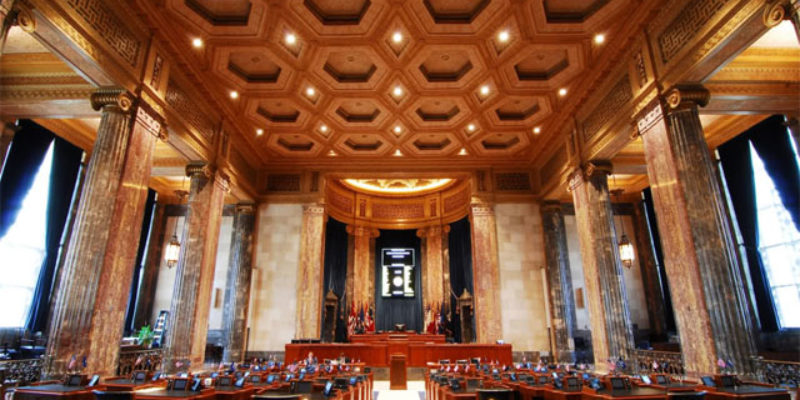Drowned out in elections hoopla was the annual fall exercise of members of the Louisiana Legislature’s transportation committees hitting the road to solicit input on funding transportation items. In the course of this, one member, Chairman of the Senate Transportation, Highways, and Public Works Committee state Sen. Robert Adley, made some observations about funding that raise an interesting policy question worth some pondering.
Adley noted that, of the about $12.3 billion in identified spending on infrastructure in the state, this year only about 5 percent of that will get addressed. That means in 20 years it all could be taken care of, except that, of course, new things continue to emerge. So, practically speaking, the backlog on some items may go on for at least a decade.
It’s an issue he and other legislators have voiced concern about in the past, most recently when some of them complained about the state giving extra money than statutorily required for roads to parishes and how other dollars dedicated to roads were siphoned off to be spent on state police. Besides stopping these practices, Adley has thrown outanother idea to whittle down the backlog.
That is by changing the “base” level for mineral revenue excesses that must go into the Budget Stabilization Fund, the savings account for the state. The Constitution stipulates that all money above that level must go to the BSF; the higher the level, the more money available for the state to spend. Further, it says that the rate may be changed by statute with a two-thirds vote in each house every ten years, and it was last done by moving from $750 million to $850 million in 2004. Further, that increase can be only as much as half of the total percentage increase in the Consumer Price Index (Urban) for the immediately preceding decade – which had it took effect at the end this Septemberwould have meant a maximum increase of $105 million.
Thus, Adley proposes that, at maximum, this much more could be spent by state government should at least $955 million in mineral revenues manifest for the state in a fiscal year – which it has been over comfortably for some time, such as in fiscal year 2013 by about $425 million (and therefore even a drop in oil prices that has put the state in some budgetary difficulty during this fiscal year still would leave the state well above the current base.) This would end up diverted from the BSF, which cannot exceed four percent of the total state revenues for the previous year, but it being only half full means there’s plenty that still could be put in it (although that will go up quite a bit in the coming year because of previous actions.)
Adley declares that “Government is not in the business of creating savings accounts. If we don’t need the money, we need to give it back to the people, or we need to spend it on what we do need. Right now the largest demand in this state is funds for infrastructure.” But that’s not correct; the largest demand in Louisiana now is to ensure that the state’s operating budget is in balance, and with projected Fiscal Year 2016 continuing revenue sources projected now to be in the neighborhood of $1.4 billion fewer than were made available as revenues this year, the BSF might become part of the formula this year to close that gap, as if the FY 2016 projected revenues fall much further, they may end up below the forecast FY 2015 revenues, triggering eligibility for use of the BSF in this instance. Raising the base could mean $35 million available for current spending from the BSF.
In short, it’s too early to think about raising the base. Not only do potential looming deficits require attention, even if they do not manifest other things should be taken care of first, such as eliminating the need to dip into the Transportation Trust Fund to pay for state police or the extra funds given to parishes (they can find their own revenues to pay for their own projects above what the state is required to give them), which would put $76 million extra a year into roads, or more than 70 percent of the extra if the base were raised to its presumed maximum. Only when these allocations have been altered should thoughts turn to raising the base.
Advertisement
Advertisement

